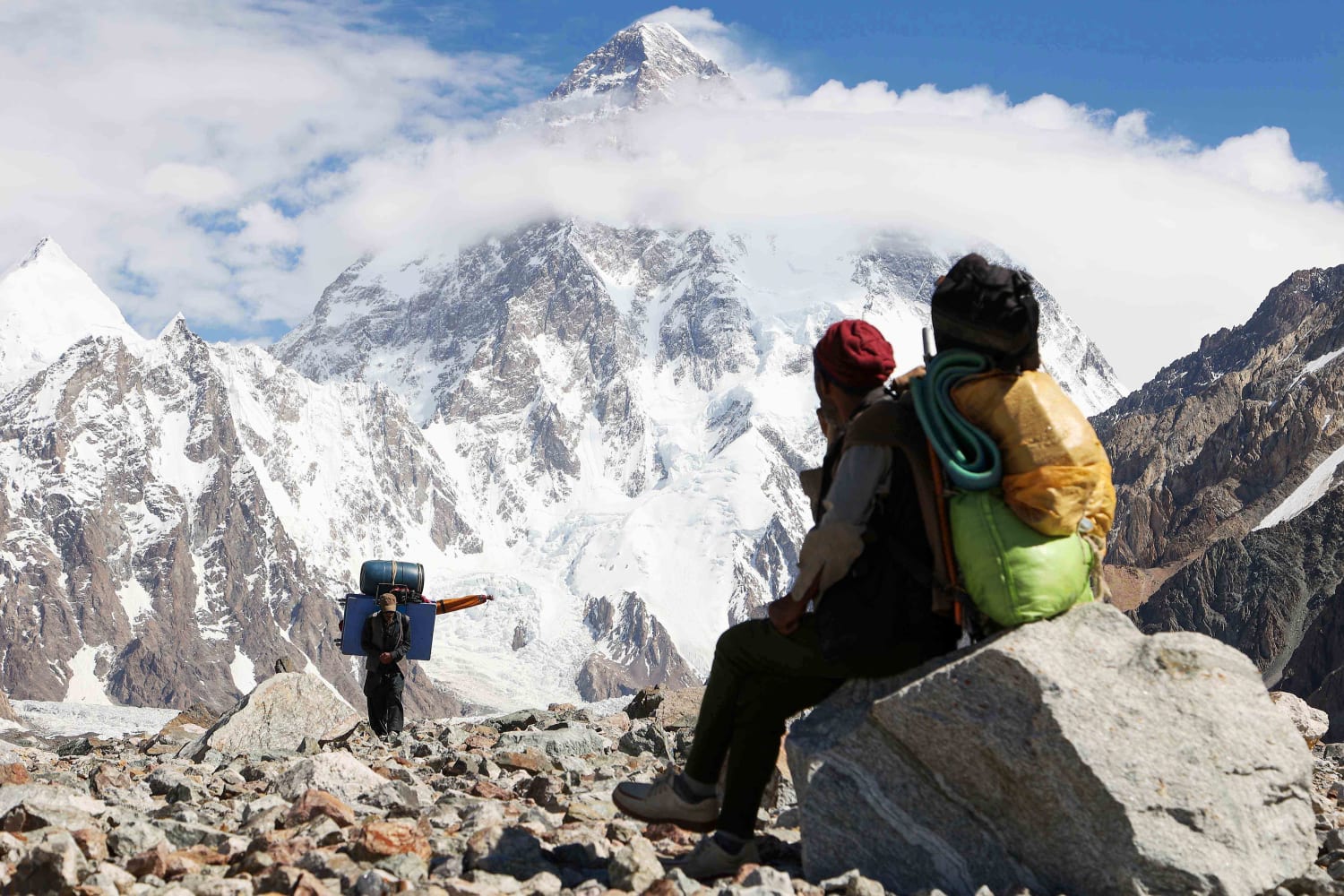[ad_1]

Hassan, a 27-year-old father of three, was hired by the Pakistan-based expedition company Lela Peak and was assigned to a team of Russian climbers, said company director Anwar Syed.
Asked if she felt the controversy had tainted her record, Harila said “of course,” but did not elaborate. She appeared distraught at times during the interview and said she had received death threats.
“We tried for hours to save him and we were on probably the most dangerous area” of K2, she said, adding that she and her teammates were “taking a very, very big risk.”
Harila said Hassan slipped and fell off the narrow path around 2:15 a.m. on July 27, dangling on a rope upside down. At the time, Hassan had been second in the line of climbers. Harila said she was eighth and her team members were in 7th and 9th place, respectively.
As they tried to pull Hassan onto the path, an avalanche came down near where her forward fixing team was. After 90 minutes of attending to Hassan, Harila and a teammate moved in the direction of the summit to check on the fixing team, while her cameraman, Gabriel, stayed behind with Hassan, she said.
Gabriel shared his oxygen with Hassan, gave him warm water and tried to warm him. She said Gabriel stayed with the porter for 2.5 hours but started running out of oxygen. Gabriel then moved toward the peak to meet up with Harila’s sherpas who had extra oxygen tanks. At that time, there were also others attending to Hassan, she said.
When Gabriel arrived at the peak, Harila asked him how Hassan was doing. She said Gabriel told her that he was “in very bad shape.”
On the way back down, she saw Hassan’s dead body lying on the path.
Harila rejected claims made by Austrian climber Wilhelm Steindl that more would have been done if a Westerner had been hurt on the mountain. Steindl and German climber Philip Flaemig, who shot the drone footage, had abandoned their K2 climb earlier that day because of bad weather.
“We did really try to save him and we would have done just the same if it was me or anyone else that was hanging upside down there,” she said. “We couldn’t have done anything more.”
Harila said Hassan didn’t seem to have proper gear or training as a high-altitude porter and that it appeared to have been his first ascent.
“It was a very tragic accident that happened on K2 that day,” Harila said. “And we feel so sorry for Hassan himself and for his family, his wife and his kids and his mother.”
Hussain, the regional official, said investigators would look at the porter’s gear and training. They will also review weather conditions on July 27, including avalanches, and examine the actions of the expedition company that employed Hassan.
Steindl told the AP on Saturday that he felt more could have been done to save Hassan. “Everyone would have had to turn back to bring the injured person back down to the valley.”
“I don’t want to kind of directly blame anybody,” Steindl said. “I’m just saying there was no rescue operation initiated and that’s really very, very tragic because that’s actually the most normal thing one would do in a situation like that.”
In Hassan’s home village of Tisar, friends and neighbors visited the family, offering prayers of condolence.
A childhood friend, Basharat Hussain, said Hassan had been determined to provide opportunities for his children that he never had, including an education.
“I think this is the most dehumanizing event in my life,” he said, adding that he hopes “it will not happen in the future.”
[ad_2]
Source link
